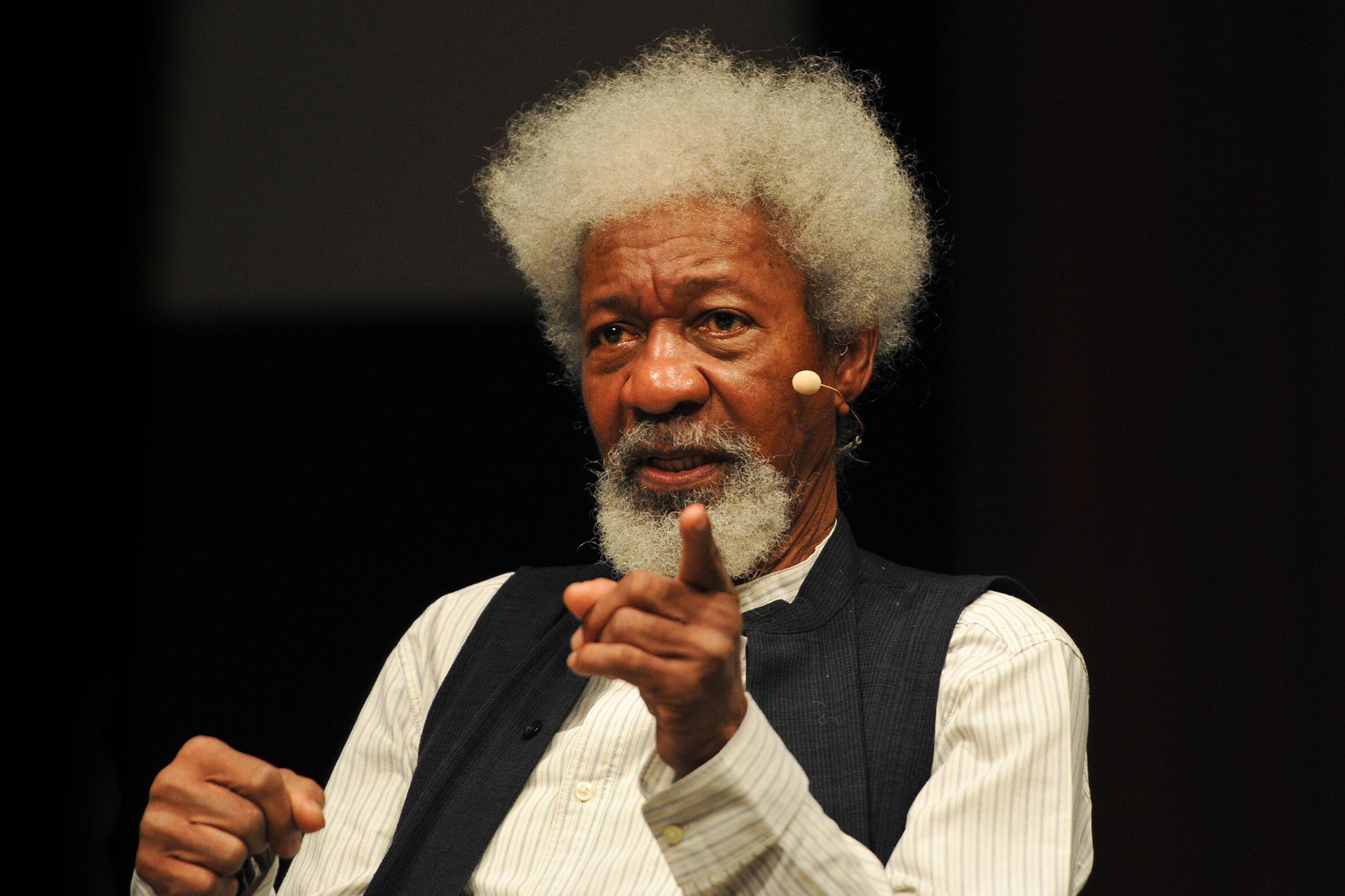
He’s been called many names: rebel, sage, prophet, troublemaker, genius. He’s faced dictators, outlived regimes, and given Nigeria a seat at the global literary table.
But in October 2025, the name Wole Soyinka trended again, not for a new book or lecture, but because his U.S. visa was reportedly revoked.
The world that once praised his courage now sings a different tune with newfound names like ‘Agbaya’ (old fool), ‘sellout’, ‘bigot’, ‘cultist’ and ‘loudmouth’. What happened?
The Story Everyone’s Talking About
On October 23, 2025, a handwritten-style letter from the United States Consulate General in Lagos landed on the desk of Wole Soyinka, informing the 91-year-old Nobel laureate that his non-immigrant U.S. visa had been revoked.
The reason? Simply stated: “additional information became available” after the visa was issued, with no further explanation offered. But what could the additional information be? We’ll get to that in subsequent paragraphs.
Soyinka, a regular Visiting Professor at top U.S. universities for decades, showed the letter to reporters in Lagos and declared, “I have no visa; I am banned.”
According to The Cable, he explained that he applied for the visa after receiving a letter from the U.S. Internal Revenue Service regarding an audit of his tax returns. He said his visit was intended to address the tax matter and avoid being publicly portrayed by the U.S. as a “tax dodger”.
READ MORE: Nobel Laureate vs. Taxi Scammer: How Wole Soyinka outsmarted his kidnapper.
A Toxic Love Story: Soyinka’s Long History with the U.S.
This isn’t Wole Soyinka’s first collision with America’s politics. In fact, it feels like history circling back with a cruel sense of irony.
In 2016, just before Donald Trump was inaugurated as U.S. president, Soyinka, then based partly in the United States, made international headlines when he vowed to destroy his U.S. green card if Trump were to win.
“The moment they announce Trump’s victory, I will cut my green card myself and start packing up,”
Days later, he confirmed that he had indeed destroyed the card, telling reporters,
“I have already done it; I have disengaged (from the United States)… As long as Trump is in charge, if I absolutely have to visit the United States, I prefer to queue for a regular visa with others.”
To Soyinka, Trump’s victory symbolised a moral decline. He described the new administration as “a dangerous expression of racial superiority and political arrogance.”
Following the act, major American outlets such as CNN, NPR, and The New York Times sought interviews to discuss his decision. Yet Soyinka declined all invitations, refusing to renew or maintain his visa just to appear on U.S. media platforms.
Now, nearly a decade later, that same defiant relationship with the United States has resurfaced, this time with the revocation of his visa. So, who is Wole Soyinka, and why was his visa revoked?
READ MORE: Nobel laureate rejects pressure to evaluate Tinubu’s govt.
Who Really Is Wole Soyinka?
Born in 1934 in Abeokuta, Ogun State, Akinwande Oluwole Babatunde Soyinka has lived several lives in one lifetime.
He’s been a playwright, a professor, a fugitive, a political prisoner, a global thinker, and a keeper of Yoruba spirituality.
His acclaimed works, Death and the King’s Horseman, Ake, The Man Died, A Dance of the Forests, and The Interpreters, use storytelling to capture societal and religious nuances and political oppression.
READ MORE: Wole Soyinka and 6 other Africans who changed the course of history
He won the Nobel Prize in Literature in 1986, becoming the first African to do so. But if a man could storm into a radio station with a gun in 1965, demanding to broadcast the truth when politicians tried to steal an election, then surely, he is no ordinary man.
So, beyond all these, what is people’s perception of him, and what could the US government be referring to as “additional information”?
1. Promotion of Cultism and Violence
Soyinka’s early involvement in the Pyrate Confraternity (founded 1952) is blamed for normalising secret cults in Nigerian universities, leading to widespread violence.
The U.S. visa revocation (2025) is suspected to be tied to the FBI tracing U.S. crimes to his “cult groups”.
2. Alleged CIA Ties and Western Sellout
In 2020, scholar Caroline Davis published African Literature and the CIA: Networks of Authorship and Publishing, arguing that the CIA (Central Intelligence Agency) covertly supported front organisations that helped boost Wole Soyinka’s international profile.
Soyinka responded angrily, denying any knowledge of such ties and demanding a full retraction.
READ MORE: Nigeria’s Soyinka rejects presidential frontrunners.
3. Political Hypocrisy and Selective Criticism
Soyinka is frequently accused of biased scrutiny of leaders, harshly criticising some while defending or aligning with others, often along ethnic or regional lines (favouring Yoruba interests).
Ethnic and Religious Bigotry
Critics claim Soyinka’s words support Yoruba dominance and are anti-Igbo or anti-Muslim, which goes against his work for human rights.
In discussions with Ali Mazrui in the 1990s, he described Islam as a “seductive superstition” forced by violence, a view similar to colonial ideas. He dismissed Muslim scholars for being too sympathetic to Arab-Islamic views.
